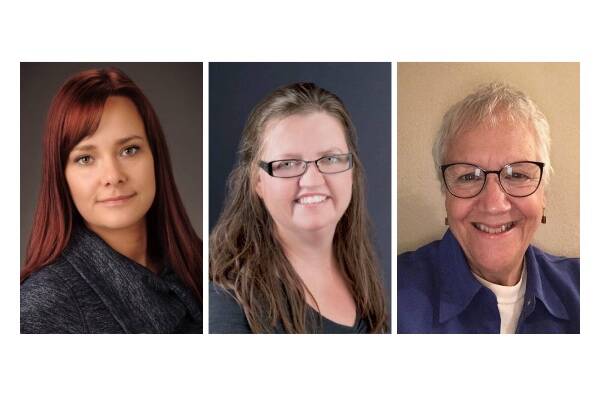Our community is like many others where people experience stress. The isolation and disruption of the pandemic, financial and housing insecurity, and the cold and dark days of winter can add to the difficulties people may be already experiencing.
While we all have times when we have trouble focusing under stress, some circumstances can lead a person to experience more severe disruptions in thinking and emotional control. Their behavior may reflect an exacerbation of an anxiety disorder, depression, or a thought disorder.
There may be a medical issue that is causing unusual behavior. The person may be experiencing family stressors or a disruption in family life. Substance use can lead to impaired thinking and judgment. And isolation and lack of social support can overwhelm normal coping skills and responses.
The behaviors we see may include emotional outbursts or tearfulness, anger, trouble thinking clearly and logically, and paranoia or fearfulness. We may also see a lack of regard for personal safety ranging from not eating or sleeping to actually being in physical danger.
As a small and caring community, we want to step in when we see someone in distress, but it is often difficult to know how to respond. While we may want to help, we may also be frightened or concerned that we might make their situation worse by attempting to intervene. We may also be frightened by the behaviors we see and be concerned about our own safety.
These are some suggestions for simple steps to take, as well as some resources for additional assistance.
First, try to assess the situation. Is this person in emotional distress, or having more serious difficulty functioning? Is there aggression or threat? If you feel unsafe, do not engage, but seek assistance.
Respect personal space. If you don’t know the person or what is happening don’t enter their space, but explain that you are concerned and want to know if they need any help.
Express concern in a nonjudgmental and empathetic manner. Keep your verbal and nonverbal language neutral and calm.
Remember that the behavior you see may be a reflection of the person’s anxiety, confusion or fear, and focus on the feelings, rather than the behavior. “That sounds very frightening.”
Allow silence if it is comfortable for you to stay with them. When someone is in crisis it may be very difficult to process conversation or follow directions. Listening is often more helpful than talking or asking questions.
If the person makes comments about self-harm, let them know that you are concerned about their safety and call 988, the Suicide and Crisis Hotline. They can offer advice to you and support to the person in crisis.
These are simple steps in a brief interaction, but they are not solutions to a serious problem. Vashon does not have resources on the island to deal with a serious mental health crisis, but there are options for concerned friends, families and community members.
• If there is evidence of ongoing and serious impairment in functioning due to mental illness or substance abuse, King County Crisis and Commitment Services evaluates people to determine whether they meet the criteria for an Involuntary Commitment to Treatment. A designated crisis responder gathers information and does an in-person assessment if indicated. Call 206-263-9200.
• Vashon Youth and Family Services provides mental health services to individuals and families. Contact vyfs.org or call 206-463-5511.
• The Dove Project provides safe and confidential help for persons experiencing domestic violence and ongoing support for survivors — contact vashondoveproject.org, info@vashondoveproject.org, or call 206-462-0911.
• NAMI, the National Alliance on Mental Illness provides information and support to family members and friends of people struggling with a serious mental illness. There is a free and confidential NAMI meeting at Vashon Presbyterian Church on the first Thursday of each month. Find out more at nami.org.
• Vashon Island Fire & Rescue (VIFR) will soon start its Mobile Integrated Health program, which will schedule non-urgent visits to residents based on internal referrals from VIFR staff. (In a crisis or emergency, you should continue to call 911.)
There are also other resources both online and on and off the island to help people. However, as concerned individuals who see a neighbor in distress, the most important thing we can do is to acknowledge the person, offer whatever support feels appropriate at the time, and reach out when additional support is needed.
Osha Christianson is the program coordinator of Vashon HouseHold’s Home Share program. Heidi Jackson is the executive director of The DOVE Project. Wendy Noble is a board commissioner of the Vashon Health Care District.



